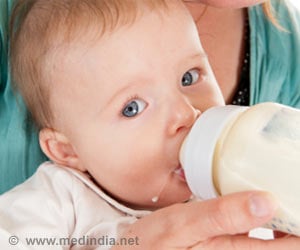
‘Children who experienced higher distress and received relatively little contact had an epigenetic age that was lower than would be expected.’
Tweet it Now
"In children, we think slower epigenetic aging might indicate an inability to thrive," said Michael Kobor, a Professor in the UBC Department of Medical Genetics who leads the "Healthy Starts" theme at BC Children's Hospital Research Institute. Although the implications for childhood development and adult health have yet to be understood, this finding builds on similar work in rodents. This is the first study to show in humans that the simple act of touching, early in life, has deeply-rooted and potentially lifelong consequences on genetic expression.
The study, published last month in Development and Psychopathology, involved 94 healthy children in British Columbia. Researchers from UBC and BC Children's Hospital asked parents of 5-week-old babies to keep a diary of their infants' behavior (such as sleeping, fussing, crying or feeding) as well as the duration of caregiving that involved bodily contact. When the children were about 4 1/2 years old, their DNA was sampled by swabbing the inside of their cheeks.
The team examined a biochemical modification called DNA methylation, in which some parts of the chromosome are tagged with small molecules made of carbon and hydrogen. These molecules act as "dimmer switches" that help to control how active each gene is, and thus affect how cells function.
The extent of methylation, and where on the DNA it specifically happens, can be influenced by external conditions, especially in childhood. These epigenetic patterns also change in predictable ways as we age.
Advertisement
The children who experienced higher distress and received relatively little contact had an "epigenetic age" that was lower than would be expected, given their actual age. Such a discrepancy has been linked to poor health in several recent studies.
Advertisement
Source-Eurekalert











